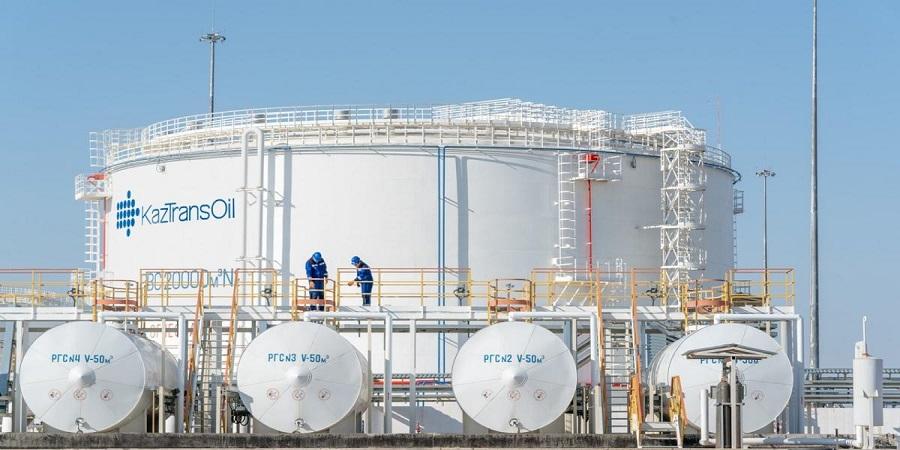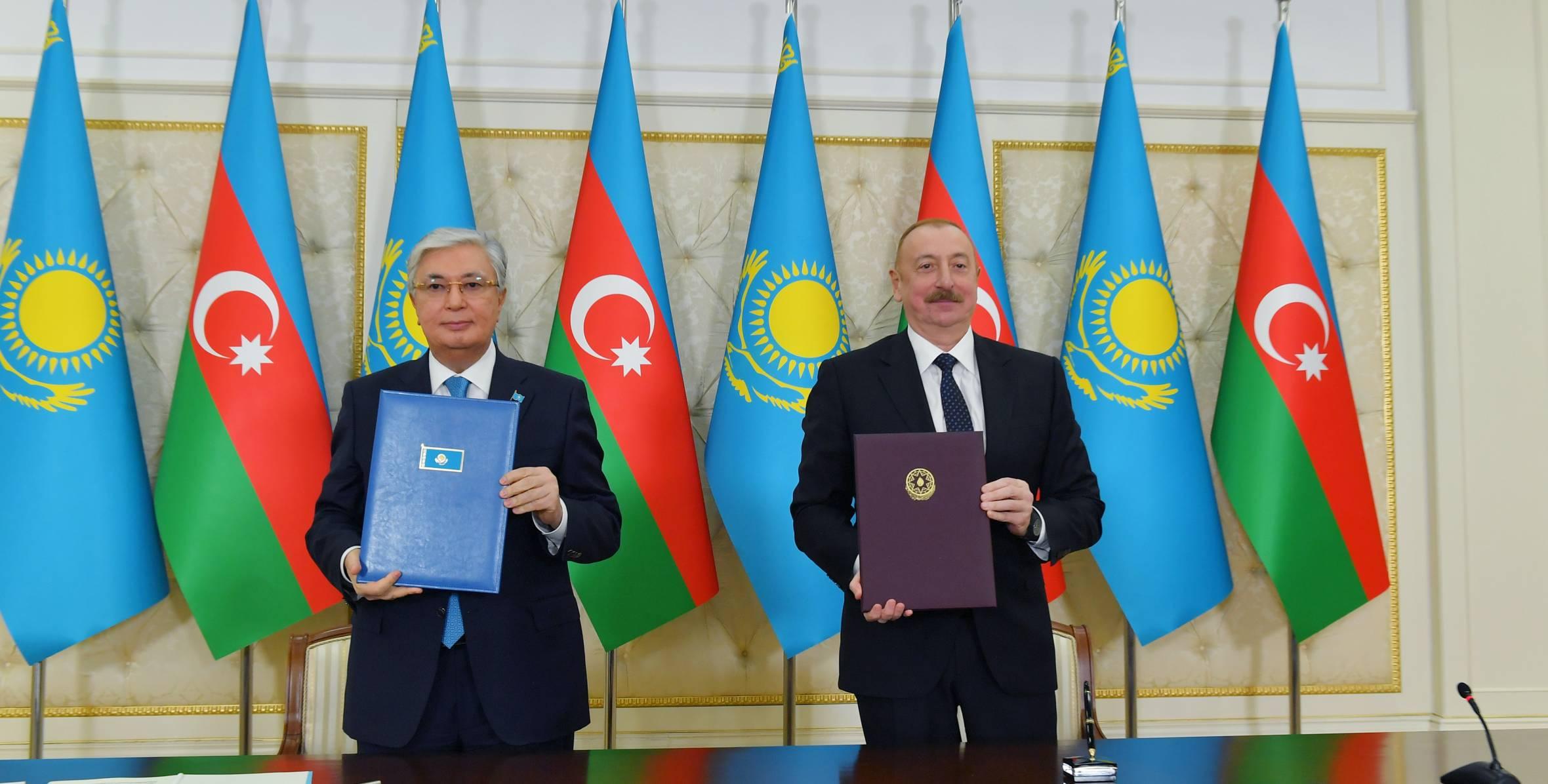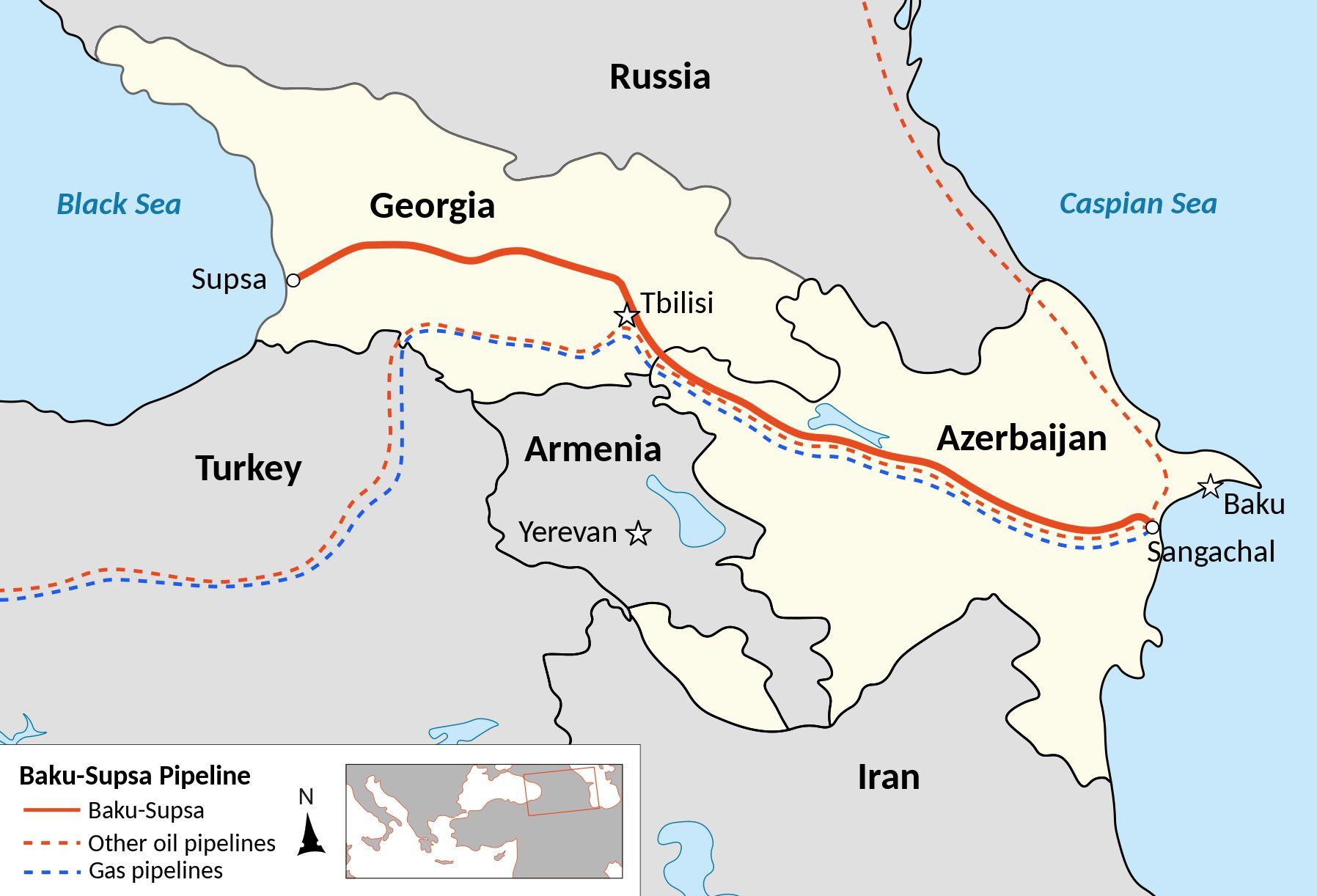Kazakhstan's efforts to diversify oil exports to Europe More oil for pipes
On March 11, Kazakhstan’s KazMunayGas JSC (KMG) and the State Oil Company of Azerbaijan Republic (SOCAR) signed the Agreement on the phased increase in the volumes of Kazakh Oil Transit across the territory of the Azerbaijan Republic and the Memorandum of Strategic Cooperation in Sale and Purchase of Kazakh Oil.
The Agreement on Phased Increase in the Transit Volumes of Kazakh Oil across the Azerbaijan Republic's territory will pave the way to increase the volumes of Kazakh oil shipments along the Aktau-Baku-Tbilisi-Ceyhan route to 2.2 million tons annually.
Since 2022, Kazakhstan and Azerbaijan have been negotiating the transfer of Kazakh oil to Europe via Azerbaijan, as the traditional route via Russia became more problematic due to political reasons and disputes. After Russia deliberately halted the transfer of Kazakh oil, Astana found an alternative route through the Baku-Tbilisi-Ceyhan (BTC) pipeline, which runs through the Caspian Sea, Azerbaijan, Georgia, and Türkiye.
As such, in early 2024, the flow of oil from Kazakhstan and Turkmenistan to European markets through Azerbaijan's territory has seen an uptick, accounting for 17.3 per cent of the total volume of oil transportation in January via the BTC pipeline.

The BTC pipeline transported more than 2.4 million tons of crude in January, making up 76 per cent of the total volume of oil transportation. During this period, Azerbaijani oil accounted for 82.7 per cent or 2,055.3 thousand tons of the total volume shipped through the BTC pipeline.
Although the flow of Kazakh oil via the BTC pipeline came with no major incident or backset, Astana's plans for a gradual increase in oil volumes seemed unrealistic. Given that the BTC pipeline functions at full capacity, transferring large amounts of Kazakh oil via the BTC was nearly impossible.
Therefore, Astana and Baku entered a new round of consultations to discover additional ways to transport Kazakh oil via Azerbaijan. In this regard, Kazakh President Kassym Jomart Tokayev paid an official to Baku on March 13 to deepen ties with Azerbaijan in economic, energy, and security fields.

Amid leaders' meeting in Baku and the decision to sign several documents on strategic partnership, Kazakhstan's Oil company offered Azerbaijan to use the Baku-Supsa oil pipeline to transfer additional Kazakh oil via Georgia. The reason for the choice is that the Baku-Supsa pipeline annually transfers a much lower amount of oil, making it suitable to be filled with additional Kazakh oil.
Consequently, the Georgian government enthusiastically agreed to use the Baku-Supsa pipeline for Kazakh oil transfer as the local authorities reaffirmed their commitment to handle more than one million tons of oil annually.
The Azerbaijani Energy Ministry also confirmed that the resumption of oil pumping along the Baku-Supsa route may start this year. This oil pipeline can transit fuel up to 5 million tons per year. The recent geopolitical developments in the Black Sea have led Western companies to reroute oil from the pipeline to the much bigger Baku-Tbilisi-Ceyhan pipeline since 2022.
Since 1999, Azerbaijan has used the Baku-Supsa oil pipeline to transship fuel from the Chirag field. In spring 2022, it was decided to suspend fuel supplies via this route due to transport problems. All Azerbaijani oil is now exported via the BTC pipeline. Kazakhstan's interest in transferring more oil volumes via the Caspian route stems from its close energy partnership with Germany, which is the leading buyer of Kazakh oil.

On February 6, Kazakhstan’s state-owned oil and gas company KazMunayGas and German company Rosneft Deutschland extended their 2023 oil export agreement by just six months, with a monthly volume of 100,000 tons.
Nevertheless, Kazakhstan still depends on Russia in its oil exports to Europe as it uses the Druzhba pipeline, operated by the Russian company Transneft, to ship its oil through Russia and Belarus to Adamowo-Zastawa in Poland, an intermediary point from where oil exports are forwarded to the Schwedt refinery.
Such prospects explain Kazakhstan's interest in boosting its partnership with Azerbaijan and gaining direct access to the Black Sea to pump more Kazakh oil en route to Europe. Therefore, Astana's alternative plan of using the Baku-Supsa oil pipeline simultaneously matches the interests of Astana, Baku, and Tbilisi.
Astana's renewed approach to energy diversification would enable it to decrease its dependence on Russia as a transit route and deepen its energy partnership with Europe by supplying it with more oil.








